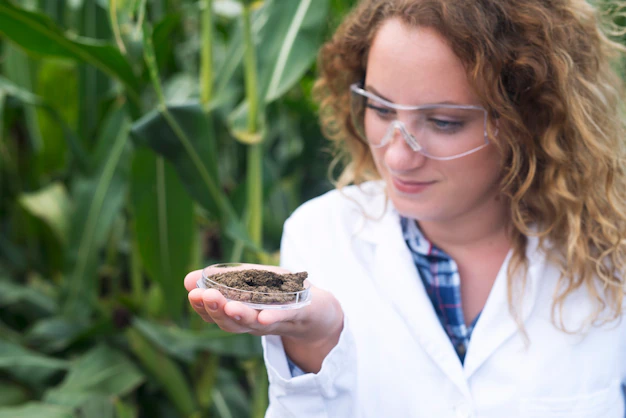Here are 10 things you should know about a job as an Agricultural Biologist:
- Role and Responsibilities: Agricultural biologists study plants, animals, and microorganisms to improve agricultural practices, crop yield, and sustainability. They conduct research, analyze data, and develop solutions to address issues related to crop diseases, pests, soil health, genetics, and environmental impact.
- Educational Requirements: A bachelor’s degree in agricultural science, biology, or a related field is typically required for entry-level positions. However, advanced positions may require a master’s or doctoral degree in agricultural biology or a specialized area.
- Fieldwork and Laboratory Work: Agricultural biologists often work both in the field and in laboratories. Fieldwork involves collecting samples, monitoring crops, and conducting experiments in agricultural settings. In the lab, they analyze data, perform genetic studies, and conduct experiments to develop new agricultural techniques.
- Specializations: Agricultural biology is a broad field, and biologists often specialize in specific areas such as crop science, plant pathology, entomology (study of insects), soil science, genetics, or sustainable agriculture. Specializations allow biologists to focus their research and expertise in a particular area.
- Collaboration and Communication: Agricultural biologists frequently collaborate with other scientists, farmers, agricultural companies, and government agencies. Effective communication skills are essential for presenting research findings, working in teams, and providing recommendations to stakeholders.
- Environmental Impact: Agricultural biologists play a crucial role in developing sustainable farming practices. They work to minimize the environmental impact of agriculture by promoting efficient water and nutrient use, reducing pesticide and fertilizer runoff, and developing strategies to combat climate change.
- Technology and Innovation: The field of agricultural biology is evolving rapidly due to advancements in technology. Biologists use tools such as genetic engineering, remote sensing, precision farming, and data analysis to improve crop productivity, develop disease-resistant plants, and optimize resource utilization.
- Policy and Regulation: Agricultural biologists may be involved in shaping agricultural policies and regulations. They provide scientific expertise to government agencies, non-profit organizations, and international bodies to develop guidelines that promote sustainable and responsible agricultural practices.
- Career Opportunities: Agricultural biologists can find employment in various sectors, including research institutions, universities, government agencies, private companies, agricultural consulting firms, and non-profit organizations. They may work as researchers, consultants, educators, or policymakers.
- Global Significance: Agriculture plays a critical role in feeding the growing global population. Agricultural biologists contribute to food security, sustainability, and the well-being of rural communities worldwide. Their work is vital in addressing global challenges such as climate change, resource scarcity, and food production efficiency.
Join 'Farmers Mag' WhatsApp Channel
Get the latest Farming news and tips delivered straight to your WhatsApp
CLICK HERE TO JOIN






